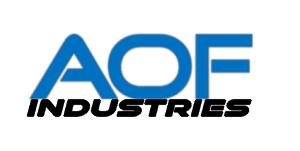The oil and gas industry is constantly evolving. To stay ahead of the curve, it’s important for companies to continuously evaluate and improve their production processes. In this blog post, we will be looking at 5 ways you can do just that. Let’s get right to it.
1. Evaluate your equipment on a regular basis.
One of the most important aspects of running a successful oil and gas operation is making sure that your equipment is in good working order. This means more than simply replacing worn-out parts on a regular basis; it also means regularly evaluating your machinery to ensure that it is up to the task at hand.
There are a number of different types of oil and gas equipment, and each has its own specific maintenance requirements. However, there are some general steps that you can take to ensure that your equipment is in good condition.
First, ensure that you have a robust preventative maintenance program. This will help to identify potential problems before they cause downtime or safety issues. Second, keep accurate records of all maintenance and repair work. This will not only help you track the performance of your equipment over time, but it will also be essential if you need to file a claim with your insurance company.
Finally, make sure that you have a plan in place for dealing with unexpected repairs or replacements. By taking these steps, you can be confident that your equipment will be able to handle whatever challenges come your way.
2. Make sure your team is adequately trained on the latest techniques and technologies.
There are numerous areas that team members need to be trained in, from safety procedures to the latest production techniques. By ensuring that everyone is up-to-date on the latest information, you can help to improve the efficiency of your operations and avoid potential accidents.
In addition, regular training can also help to boost morale and keep employees engaged in their work. That’s because they begin to believe that you believe in their development as a professional.
3. Use data to drive decision-making.
Data should be at the heart of any decision-making. After all, it is only by understanding how your processes are performing that you can hope to make improvements. There are a few key types of data that you should focus on when looking to improve production:
A) Efficiency data – This data will tell you how well your production process is using inputs such as energy, water, and raw materials. By understanding your efficiency, you can identify opportunities to reduce waste and improve output.
B) Quality data – Essential for ensuring that your products meet customer expectations; monitoring quality closely is crucial.
C) Costs data – How much is it costing, where are your opportunities to reduce, and how can you ultimately improve your bottom line?
Focusing on these key types of data will guarantee that your decision-making is based on solid evidence. This will help you to identify areas where improvement is needed and make the changes necessary to drive up productivity.
4. Stay up-to-date on the latest industry news and trends.
It’s no secret that the oil and gas industry is in a state of flux. Costs are rising, regulations are tightening, and new technologies are upending traditional business models. In such an uncertain environment, it’s more important than ever for oil and gas companies to stay abreast of industry news and trends.
After all, knowledge is power. By understanding the latest developments in the oil and gas industry, companies can make more informed decisions about strategic planning, operations, and marketing.
What’s more, keeping tabs on industry news can help managers anticipate changes in the market and adjust their business plans accordingly. In today’s dynamic oil and gas landscape, staying informed is key to success.
5. Promote safety throughout your organization.
Safety is paramount in the oil and gas industry. Not only are there strict regulations in place to protect workers, but companies also have a responsibility to ensure that their employees are safe. Also, safety is good for business. Accidents can lead to production delays, legal liabilities, and an overall rise in costs. A commitment to safety can help to prevent accidents and protect both workers and the bottom line.
There are a number of ways to promote safety. First and foremost, companies should provide comprehensive training. This training should cover both the basics of safety protocol as well as specific procedures for each job.
Additionally, companies should invest in the latest safety equipment and make sure that it is maintained properly. Finally, regular safety audits can help to identify potential hazards before they lead to accidents.
Following These Leads Will Boost Productivity All-Around
By following these 5 tips, you can improve your production processes, stay ahead of the competition, and better serve energy needs. Implementing even just a few of these suggestions can make a big difference to the industry—so don’t wait any longer, get started today!
AOF Industries has witnessed its clients grow by leaps and bounds in their oil and gas production processes over the last decade. This has come, in no small part, to our working relationships with clients whose commitment to getting more out of the technologies they’re already using has made all the difference. Where does one start? With a simple email or phone call. Follow the link to learn more about all the ways we can help!
